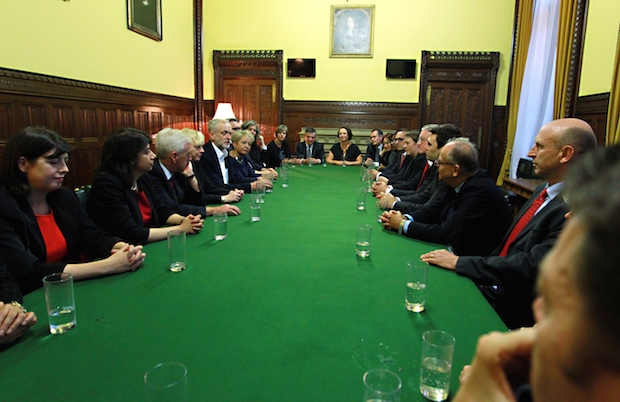Jeremy Corbyn has really pushed the button on the tensions in his party over Trident renewal. The Labour leader insists that he is just being honest when he says that he would never use nuclear weapons. But what he has done is to put his party in an impossible position. Either it respects his huge mandate and makes scrapping Britain’s nuclear deterrent official policy. Or else it votes to force the resignation of the leader.
At first glance, this sounds rather confusing, and Corbyn’s team and John McDonnell have been spinning that Jeremy is just being honest about a long-held personal position. Why is this the implication of a man who has long opposed nuclear weapons saying that he would never use those nuclear weapons?
The reason Corbyn saying he would never use nuclear weapons is a problem is that until yesterday’s conference speech, his position was that he would take a personal view on this matter, but that it was up to his party to decide policy. The logic of this great revival of party democracy is that if the party decides it will do something, the leader must submit to it. And therefore if the Labour party decides it is committed to renewing Trident, then the leader must submit to that. That means accepting that the reason the deterrent exists is as a deterrent that people think that you might use. If you say you’d never use it, you are saying that you will let your party splurge £20bn (or more) to buy something that is utterly pointless.
So that’s why Maria Eagle told Radio 5Live that Corbyn shouldn’t have said what he did:
‘I am surprised he answered the question in the way that he did. We have got a policy process going on about what our policy as a party is on this. Our current policy is quite clear and it is in favour of us having an independent nuclear deterrent.
‘I don’t think he had to answer the question and I don’t think he needed to answer the question in the way in which he did.
‘I don’t think that a potential Prime Minister answering a question like that in the way in which he did is helpful.’
And it’s why Paul Kenny of the GMB told the World at One that Corbyn would have ‘a choice to make in terms of whether he followed the defence policy of the country, or felt that he should resign. His integrity would drive his decision one way or another.’
Incidentally, both Eagle and Kenny are exemplifying the ‘new politics’, which is to be honest about your differences in public. But Diane Abbott seemed rather less impressed with their honesty than she was with Corbyn’s answer.
If Corbyn is truly committed to the new politics which involves empowering the Labour party, then he will need to submit to decisions that contradict his principles, just as he expects the Shadow Cabinet and Parliamentary Labour Party to do. If he doesn’t, the new politics will look awfully like a rather older politics where party leaders only accept votes on policy that they agree with anyway.







Comments